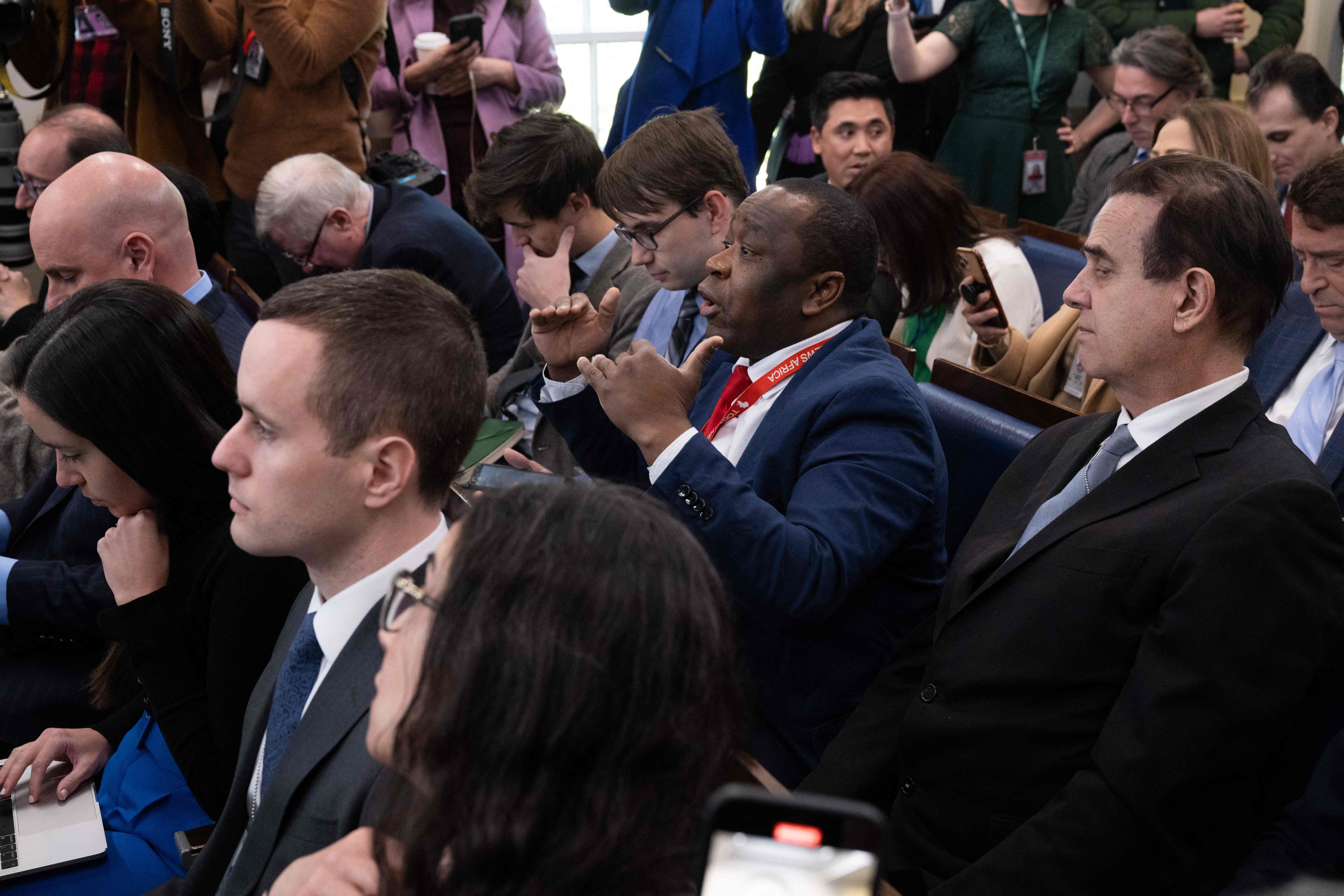The White House released new requirements Friday outlining which journalists are allowed in the briefing room and presidential events, and warning about unprofessional behavior.
The new rules require journalists to submit a letter to gain access to the White House grounds with information about their employment, mandating that reporters work for “an organization whose principal business is news dissemination.”
The rule change comes as the administration has been facing repeated outbursts in the briefing room from reporters like Simon Ateba, and comes days after World Press Freedom Day. Journalists have called out White House press secretary Karine Jean-Pierre for not giving fair representation in the briefing room and the Biden administration has faced criticism from the press corps over unfair access to White House events. (RELATED: Press Corps Explodes As KJP Publicly Berates Daily Caller Reporter)
All current “hard passes,” which are used to gain access to the White House grounds and press briefings, will expire July 31.
The letter requires reporters to submit their physical address, a statement saying they have accessed the White House in the last six months and cover the White House “on a regular basis,” as well as proof of “accreditation by a press gallery in either the Supreme Court, U.S. Senate or U.S. House of Representatives.” (RELATED: White House Demands Media ‘Comply,’ Hauls Specific Reporters Out Of Biden’s UFO Brief)
Reporters will also have to state they have the willingness “to submit to any necessary investigation by the U.S. Secret Service to determine eligibility for access to the White House complex, where Secret Service will determine eligibility based on whether the applicant presents a potential risk to the safety or security of the President, the Vice President, or the White House complex.”
The guidelines include a provision stating that journalists who have access to the White House maintain a “professional manner,” and not impede “events or briefings” on campus. Violators face the possibility of suspension.

Today News Africa reporter Simon Ateba (C) interrupts as White House Press Secretary Karine Jean-Pierre (not pictured), begins the daily press briefing in the Brady Press Briefing Room of the White House in Washington, DC, March 20, 2023. (Photo by SAUL LOEB / AFP) (Photo by SAUL LOEB/AFP via Getty Images)
“The White House expects that all hard pass holders will act in a professional manner while on White House grounds by respecting their colleagues, White House employees, and guests; observing stated restrictions on access to areas of the White House or credentialed events; and not impeding events or briefings on campus. Absent security concerns involving the United States Secret Service or other exigent circumstances, the White House will provide a written warning to you if your conduct violates these expectations. Subsequent violations may lead to the suspension or revocation of your hard pass, following notice and an opportunity to respond,” the guidance states.
The Trump administration attempted to temporarily ban several reporters who had confrontations with administration staff. A federal appeals court ruled that journalist Brian Karem, who shared a heated exchange with Sebastian Gorka, did not have “fair notice” to have his credentials revoked.
Ateba, who interrupted several White House press briefings after not being called on for months, claimed the new rules stemming from the White House are due to his “presence.”
“While I don’t feel upset that the White House is making changes due to my presence, it is ironic that these modifications come shortly after President Biden declared that journalism is not a crime on World Press Freedom Day. It appears that if you excel at your job, both the WHCA and the White House may work together to target you. This situation exacerbates the public’s lack of trust in the media and politicians in Washington,” Ateba told the Daily Caller.
The White House did not immediately respond to the Caller about why they are making the changes to pass requirements at this time, but an official told the New York Post the rule change had been in the works “for more than a year” and is a product of “feedback of journalists covering the White House.”
“As we return to these prior criteria, which help ensure hard passes are in the hands of reporters who need regular access to campus as part of their duties, we are providing a nearly 3-month window for reporters to turn in their applications and reach out with any questions. The criteria will apply evenly to everyone,” the official said, according to the Post.

